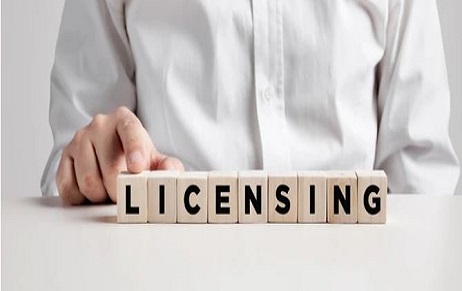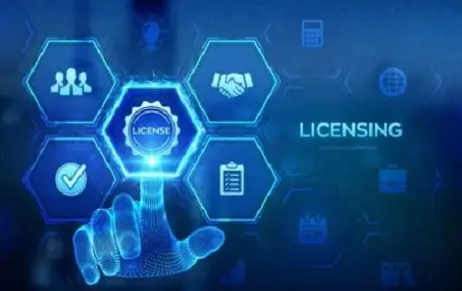Introduction A trademark helps a consumer obtain goods and services of a certain quality and reduces…
Concept Of Compulsory Licensing Under The Patents Act
An inventor is allotted with the patent right in exchange for disclosing its invention. Apart from the inventor of that patent, the public is being benefited most. Therefore it must be taken into consideration that the invention is made surely available to the public. But there seems to a danger of misuse of such monopolistic power by the patent holder by refusing to grant a license or imposing unnecessary limitations on the use of patented articles.
The relevant provisions of compulsory licensing are elucidated in the Patents Act to prevent such situations. Compulsory licensing is mainly a process in which the authorization is provided by the officials allowed by law to grant a license, which may be in absence of the consent of the proprietor holder for the protected patent invention. The origin of compulsory licensing is mainly linked to the functions introduced by the US statutes of monopolies in1623.
Government grant compulsory license to use the patented invention. The main object of government in issues compulsory licensing is to provide wide access to technology and information so as to meet the maximum needs of the public at large.
Patents & other intellectual property are the creations of government. Each nation is granted the right to issue compulsory licensing.
A compulsory license for a patented invention is protected under the widely accepted international treaty of the Paris Convention and the TRIPS Agreement.
Compulsory Licensing In India
The main objective of permitting compulsory licensing of Patents in India is to ensure the smooth working of patented inventions in the commercial sector and therefore it must be taken into consideration that the interest of persons who are contributing or working in the invention must not be a detriment.
The Patents Act, 1970 provides the highlights for compulsory licensing and requires that the general conditions provided under section 84-94 of the act must be fulfilled while granting the compulsory license.
As per Section 84(1) of the Act compulsory licensing can be permitted after the expiration of three years from the date on which permission for patent is given providing the following grounds must be fulfilled:
- The patented invention is not fulfilling the necessary requirements of the people at large
- The invention is not accessible at affordable prices to the general
- The invention patented is in non-working use in India.
The Patents Act, 1970 provides for provisions that describe “requirements of the public”. Section 84(7) of the act defines the “requirements of the public” which can be one of the listed situations:
- Refusal to permit the licensee to grant a license on reasonable
- Conditions imposed by the
- The patented invention in non-working use in India.
- Non-working of the invention patented on a commercial level in
Further, as per section 85 of The Patents Act 1970, the controller is provided with the power to revoke the patent for its non-working within the territory of India. Once the period of expiry of two years from the permitted use of a patent is ended, a person may apply for the revocation of the patented product to the controller on the ground that the patented product is in non-working use within India or for any other reason which results in non-satisfaction to the public.
Licensing to facilitate the use of Dependent Patents
The act has provisions enumerated u/s 91 for licensing to facilitate the use of related patents. In the case of compulsory licensing, the proprietor of the patent holder is not only benefited from the compensation of the use of patent but also from the right to use the dependent patent.
In accordance with section 92 of the act, the Central Government has the power to permit compulsory license via notification. If the Central Government is satisfied that the patent licensing is necessary as a reason:
- The government can permit licenses in exceptional cases when the product is used for exporting to another country
- The situation is such as of extreme concern or a case of emergency at the national level or the public use it for non-commercial
Therefore the government may declare the same officially through a notification in the Gazette.
Judicial View
Supreme Court for the first time in the case of “Bayer Corporation v Union of India” grants patented license for compulsory use to the Natco Pharma Ltd. for the production of a generic version of Bayer’s patented medicine considering the public at large. Natco Pharma Ltd. files u/s 84 of the Act for compulsory licensing due to the reason that the public at large didn’t have access to the generic medicine at an affordable price for the kidney and liver treatments. Therefore, the court grants a compulsory license to Natco Pharma Ltd. considering the public health at large.
In the case of Lee Pharma v. AstraZeneca2, the application for the grant of the compulsory license is rejected stating that Lee Pharma was not succeeded in demonstrating the necessary needs of the public. And also it was not successful in showing the ratio of the number of patients who required the drugs and how many of them are not able to avail it due to the non-availability of the same.
Author: Manya Jaitley, a 5th Year BBA LLB Student, JEMTEC School of Law (Guru Gobind Singh Indraprastha University) intern at IIPRD. In case of any queries please contact/write back to us at [email protected].



